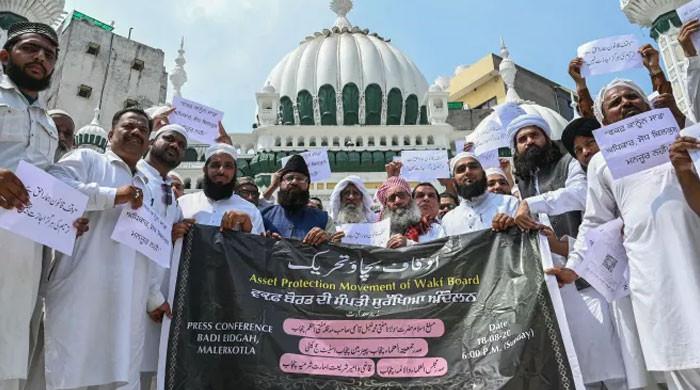“`xml
India Deploys Troops Amidst Protests Over Waqf Amendment Bill
- Police report that a child is among the deceased.
- Troops were deployed following high court orders.
- 118 individuals have been arrested, and 15 police officers sustained injuries.
KOLKATA: In response to widespread protests in West Bengal concerning legislative changes to the management of Muslim-owned properties, India has deployed troops to restore order.
On Friday, police used tear gas to disperse thousands of demonstrators in the Murshidabad district. Authorities confirmed that three people, including a child, died during the unrest.
Jawed Shamim, a senior police official, stated that 118 individuals have been taken into custody due to the violence, and at least 15 police officers were injured during the demonstrations.
The deployment of federal troops was mandated by the state’s high court.
The Waqf amendment bill, the catalyst for these protests, was recently passed after significant debate.
Across India, approximately two dozen Waqf boards manage around 900,000 acres of land. This extensive property portfolio constitutes a multi-billion-dollar empire, positioning these boards among the largest landowners, alongside railway and defense entities.
Kiren Rijiju, the Minister of Parliamentary Affairs, introduced the bill with the aim of curbing corruption and mismanagement within these organizations.
Amit Shah, the interior minister, noted that the amendments would target those who exploit Waqf properties for personal enrichment, thereby preventing the misappropriation of funds intended for minority development.
According to Shah, the inclusion of non-Muslims on the boards under the new legislation will be limited to “administrative” functions. However, opposition parties argue that the government is promoting divisive policies that negatively impact India’s 200 million Muslim citizens.
The ruling Hindu nationalist government asserts that these changes will enhance transparency in land management by holding Waqf boards accountable for the properties they oversee.
Conversely, the opposition views the bill as a divisive measure targeting India’s Muslim minority, accusing the Prime Minister’s party of seeking favor with its Hindu base.
Following the bill’s passage, the Prime Minister hailed it as a significant milestone.
Rahul Gandhi, a leader of the opposition, suggested that the bill’s current focus on Muslims establishes a concerning precedent for potential targeting of other communities in the future.
Over the past decade, the Prime Minister has cultivated an image as a strong advocate for India’s Hindu majority.
Actions taken by his government include revoking the constitutional autonomy of a region and supporting the construction of a temple on land previously occupied by a mosque.



Comments (0)
No comments yet. Be the first to comment!
Leave a Comment